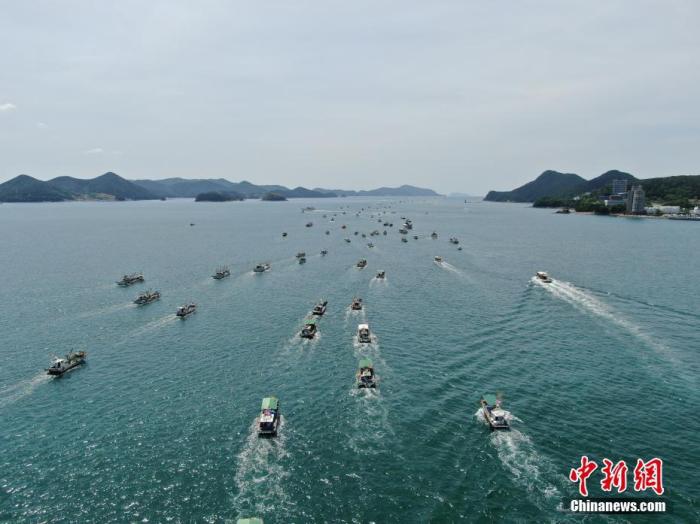China News Service, May 5, South Korean media reported that on the morning of the 5th local time, South Korean Foreign Minister Zheng Yirong, who visited the UK to attend the Group of Seven (G7) foreign ministers’ meeting, was in London with US Secretary of State Anthony Brinken and Japanese Foreign Minister Toshimitsu Motegi. During the talks, the three parties agreed to strengthen cooperation on the new U.S. policy toward North Korea.
After the talks, Zheng Yirong and Motegi Toshimitsu also held bilateral talks. The two sides still had differences on historical issues and Japan's decision to discharge nuclear sewage.
According to reports, the three parties of South Korea, the United States and Japan focused on discussing the cooperation plan for implementing the new US policy toward North Korea, so as to prompt North Korea to return to the negotiating table at an early date.
An official from the South Korean Ministry of Foreign Affairs who accompanied the meeting said that the US introduced its new policy toward North Korea at the meeting. The foreign ministers of South Korea, the United States and Japan agreed that in order to achieve the complete denuclearization of the Korean Peninsula, policy alignment and cooperation are very important.
Brinken has held bilateral talks with Yoshiyuki Cheng and Toshimitsu Motegi on the 3rd, sharing the US policy toward North Korea.
The United States’ new policy towards North Korea aims to achieve the complete denuclearization of the Korean Peninsula and aims to resolve the Korean Peninsula issue through practical and flexible diplomatic means.
Zheng Yirong previously stated at the Korean-US foreign ministers’ meeting that the Biden administration’s orientation towards the DPRK’s policy evaluation results is of practical and substantive significance, and he welcomes this.
Motegi Toshimitsu also said that he supports and welcomes the U.S. policy towards North Korea, which attaches great importance to cooperation with Japan and South Korea, and hopes that the three countries can always maintain close cooperation.
The report pointed out that this is the first meeting between the foreign ministers of South Korea, the United States and Japan in 1 year and 3 months since February 2020. It is also the first meeting between Zheng Yirong and Toshimitsu Motegi since taking office in February 2021.
On April 26, in Tongyeong City, South Gyeongsang Province, South Korea, 350 fishing boats went to sea collectively to protest Japan's plan to discharge nuclear sewage into the sea.
Photo courtesy of the Korea Tongyeong Geoje Environmental Movement Federation issued by China News Service
After the Korea-US-Japan talks ended, Zheng Yirong and Motegi Toshimitsu held bilateral talks.
South Korea and Japan exchanged views on issues left over from history and bilateral relations.
The South Korean Ministry of Foreign Affairs issued a press release after the talks, stating that the foreign ministers of the two countries agreed that it is necessary for South Korea and Japan to maintain close cooperation for peace and prosperity in Northeast Asia and the world, and to develop future-oriented bilateral relations.
The two sides agreed to cooperate on the North Korean nuclear issue of mutual concern, but there is still a wide gap between the position of the Japanese government in the case of Korean forced labor during World War II and compensation for comfort women during the Japanese colonial rule, and the decision of the Japanese government's Fukushima nuclear sewage to enter the sea.
According to the report, Zheng Yirong expressed concern and opposition to Japan's decision to discharge nuclear sewage into the sea without prior consultation with neighboring countries.
He emphasized that the discharge of nuclear sewage into the sea will pose a potential threat to the health and safety of Korean people and the marine environment, and it must be handled with caution.
Toshimitsu Motegi asked the South Korean side to take appropriate measures in the comfort women's claim case, and reiterated the South Korean side's original position that Japan should come up with an acceptable plan on the issue of Korean forced labor in World War II.
Zheng Yirong emphasized that if Japan does not have a correct historical understanding, it will not be able to solve the problems left over from history, and he stated the South Korean government's stance on the Japanese military's comfort women and forced labor.

